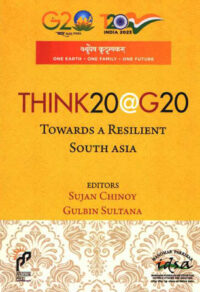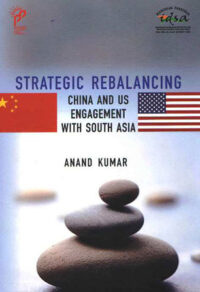Jinnah: His Successes, Failures and Role in History
More than seven decades after Pakistan’s creation, Mohammad Ali Jinnah continues to captivate both his critics and admirers. While the former excoriate him for exploiting religion to achieve his goal, the latter hail him as the Qaid-e-Azam (Great Leader) who single-handedly secured a homeland for the Muslims of British India.
Humanitarianism, National Security, and the Rohingya Refugee Policy of Bangladesh
How do humanitarian norms and national security concerns shape a host state refugee policy? This article addresses this question in the context of Bangladesh, the largest host state in the world for Rohingya refugees. It argues that although the norms of humanitarian protection can explain why a host state would open its border to forced migrants and allow relief agencies access to the refugee camps, humanitarianism alone cannot explain the full gamut of a state’s refugee policy.
Speech of the Prime Minister of India, Mrs. Indira Gandhi at a Public Rally in Dacca, 17 March 1972
“My heart overflows as I come to your beautiful country and to this historic ground. For many years, we had all heard of the beauty of Bangladesh. For many years, we had known about the agony you have suffered, and especially the fierce atrocities of last year. The story of your journey through darkness has moved the hearts of people and brought tears to the eyes wherever people value the human spirit.
We Don’t Know Defeat
“At first, I remember the students, the labourers, the peasants, the intellectuals, the soldiers, the police, the people, the Hindus and the Muslims of my Bangladesh who were killed. I, wishing for their souls and paying tribute to them, would like to say a few words to you.
From 7 March to Independence (Sat-e-March Theke Swadhinata) (In Bengali)
Independence is a man’s birthright that helps people to express themselves within the contours of family, state and society. The lack of freedom leads to the insecurity that he strives to escape from. The paucity of political freedom is largely associated with the independence of a state in which people usually live in a state of captivity, in mass deprivation and persecution. To tackle these issues of dispossession and exploitation, revolutionaries emerge on the scene with charismatic words, values and acts, with the motive of emancipating people.
The Liberation War of 1971 and India
India’s role in the liberation war is often seen through the geopolitical prism. Its response to developments in East Pakistan was complex and evolved over a period of time. Before taking recourse to military action, India exhausted its diplomatic initiatives to draw the attention of the international community to the refugee crisis which arose due to the Pakistan Army-perpetuated genocide – a term first used by India in the Parliament Resolution of 31 March.
Histories and Memories of the Liberation War: Saranarthis in Tripura
In the twentieth century, South Asia experienced mass migrations of millions of insecure homeless people twice: it witnessed the Partition-refugees from 1947 and saranarthis during the liberation war of 1971. The Indian State treated the first category as ‘citizen-refugees’, whereas the saranarthis were like temporary shelter-seekers. Among the Northeastern states, Tripura played the most crucial role in providing them with all essential supports.

















